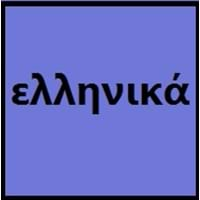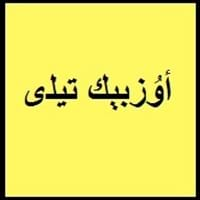Countries
Cyprus, European Union, Greece
Turkey, Uzbekistan
National Language
Albania, Cyprus, Egypt, France, Greece, Italy, Romania, Turkey, Ukraine
Afganistan, China, Kazakhstan, Kyrgyzstan, Russia, Tajikistan, Turkmenistan, Uzbekistan
Second Language
Roman Empire
Not spoken in any of the countries
Speaking Continents
Asia, Europe
Middle East
Minority Language
Albania, Armenia, Australia, Hungary, Italy, Romania, Turkey, Ukraine
Not spoken in any of the countries
Regulated By
Center for the Greek language (Κέντρον Ελληνικής Γλώσσας)
Not Available
Interesting Facts
- Greek is the longest documented language of all the Indo-European Langauges.
- The official language of education in the Roman Empire was Greek.
- Uzbek is officially written in the Latin script, but many people still use Cyrillic script.
- In Uzbek language, there are many loanwords from Russian, Arabic and Persian.
Similar To
Armenian
Kazakh and Uyghur Languages
Derived From
Latin
Not Available
Alphabets in
Greek-Alphabets.jpg#200
Uzbek-Alphabets.jpg#200
Scripts
Arabic, Latin
Arabic, Cyrillic, Latin
Writing Direction
Left-To-Right, Horizontal
Not Available
Hello
γεια σας (geia sas)
Salom
Thank You
ευχαριστώ (ef̱charistó̱)
Rakhmat
How Are You?
πώς είσαι (pó̱s eísai)
Qalay siz?
Good Night
Καληνυχτα (Kali̱nychta)
Hayirli tun
Good Evening
καλησπέρα (kali̱spéra)
Hayirli kech
Good Afternoon
Καλὸ ἀπόγευμα (Kaló apóyevma)
Hayirli kun
Good Morning
καλημέρα (kali̱méra)
Hayirli tong
Please
παρακαλώ (parakaló̱)
Iltimos
Sorry
συγνώμη (sygnó̱mi̱)
Kechiring!
I Love You
Σε αγαπώ (Se agapó̱)
Sizni sevaman
Excuse Me
Με συγχωρείτε! (Me synhoríte)
Iltimos! Menga qarang
Dialect 1
Cappadocian Greek
Tashkent
Where They Speak
Greece
Not Available
How Many People Speak
Not Available
Where They Speak
Italy
Not Available
How Many People Speak
Not Available
Dialect 3
Mariupol
Ferghana
Where They Speak
Ukraine
Not Available
Native Name
ελληνικά
أۇزبېك ﺗﻴﻠی o'zbek tili ўзбек тили (o‘zbek tili)
Alternative Names
Ellinika, Graecae, Grec, Greco, Neo-Hellenic, Romaic
Annamese, Ching, Gin, Jing, Kinh, Viet
French Name
grec moderne (après 1453)
ouszbek
German Name
Neugriechisch
Usbekisch
Pronunciation
[eliniˈka]
Not Available
Ethnicity
Greeks or Hellenes
Uzbek
Origin
1500 BC
9th–12th centuries AD
Language Family
Indo-European Family
Turkic Family
Branch
Not Available
Southestern(Chagatai)
Early Forms
Proto-Greek, Mycenaean Greek, Ancient Greek, Koine Greek and Medieval Greek
Chagatay
Standard Forms
Modern Greek
Uzbek
Signed Forms
Greek Sign Language
Not Available
Scope
Individual
Macrolanguage
ISO 639 6
ells
Not Available
Glottocode
gree1276
uzbe1247
Linguasphere
56-AAA-a
No data available
Language Type
Living
Living
Language Linguistic Typology
Subject-Verb-Object
Not Available
Language Morphological Typology
Fusional, Synthetic
Not Available
All Greek and Uzbek Dialects
Most languages have dialects where each dialect differ from other dialect with respect to grammar and vocabulary. Here you will get to know all Greek and Uzbek dialects. Various dialects of Greek and Uzbek language differ in their pronunciations and words. Dialects of Greek are spoken in different Greek Speaking Countries whereas Uzbek Dialects are spoken in different Uzbek speaking countries. Also the number of people speaking Greek vs Uzbek Dialects varies from few thousands to many millions. Some of the Greek dialects include: Cappadocian Greek, Griko. Uzbek dialects include: Tashkent , Afghan. Also learn about dialects in South American Languages and North American Languages.
Greek and Uzbek Speaking population
Greek and Uzbek speaking population is one of the factors based on which Greek and Uzbek languages can be compared. The total count of Greek and Uzbek Speaking population in percentage is also given. The percentage of people speaking Greek language is 0.18 % whereas the percentage of people speaking Uzbek language is 0.39 %. When we compare the speaking population of any two languages we get to know which of two languages is more popular. Find more details about how many people speak Greek and Uzbek on Greek vs Uzbek where you will get native speakers, speaking population in percentage and native names.
Greek and Uzbek Language Codes
Greek and Uzbek language codes are used in those applications where using language names are tedious. Greek and Uzbek Language Codes include all the international language codes, glottocodes and linguasphere.





